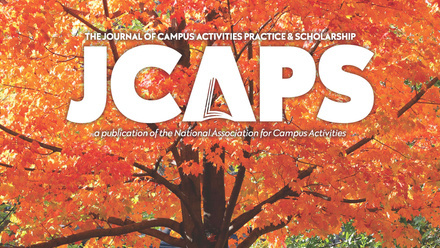Cost of Caring in Student Affairs: When Professional Loss Becomes Personal - JCAPS Vol. 5 Issue 1
On Friday, September 30th, I (Stephanie Russell Krebs) opened Facebook after not logging in for a few days and was brought to my knees when I saw a post that a dear colleague and friend, Dr. Adam Peck, Assistant Vice President for Student Affairs at Illinois State University, had unexpectedly passed away in a tragic accident on campus. Adam and I served together on the Editorial Board for the Journal of Campus Activities Scholarship and Practice. The announcement of Adam’s passing immediately transported me back eight years to a time when I served as Senior Student Affairs Officer at The University of Tampa– when the campus lost a beloved staff member quickly and unexpectedly. I was charged with leading my team through that tragedy while also supporting our students, all while personally grieving myself. That experience was one of the most challenging and meaningful experiences I have navigated as a Senior Student Affairs Officer because the work and the emotions spanned across my professional and personal life.
Many student affairs professionals have experienced grief spanning across our personal and professional lives. Adam’s passing prompted the authors of this article to share stories of similar staff losses to provide insight into navigating similar tragedies. As student affairs professionals, we often serve on the “front lines” when bad things happen. These roles are mentally exhausting to take on, even when you are not in relationship with those impacted. So, when you are in relationship with the loss, the complexity at the intersection of managing our grief while helping others process their own can seem overwhelming.
This article will explore two different cases of staff deaths, from the perspective of the Senior Student Officer, at two unique institutions, and how the student affairs staff managed their own grief processes while leading and supporting their teams. A theoretical framework of secondary traumatic stress, grief, and healing will be woven throughout the article, with special attention focused on the healing process and reflections for practice. All involved in this article respected Dr. Adam Peck as the consummate scholar/practitioner. We believe he would enjoy knowing that his passing was the inspiration for this article aimed at providing tools for other student affairs staff members navigating loss, love, and forward movement.





